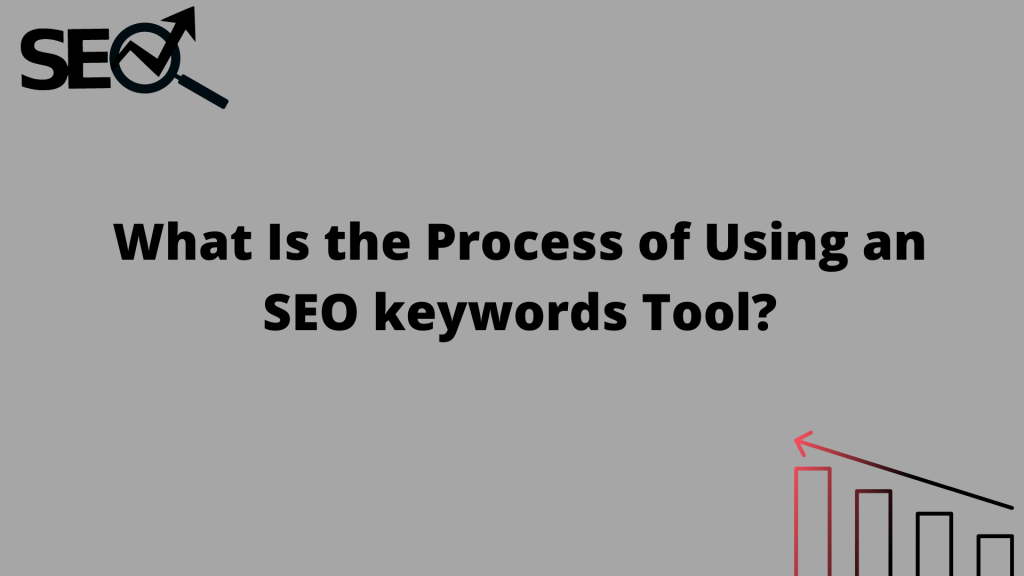Best uses SEO keywords tools in 2022

What exactly are SEO keywords?
SEO keywords are ideas and subjects that define the subject matter of your article. They’re the words and phrases that people type into search engines, often known as “search queries” in SEO.
These are your major keywords if you reduce everything on your page — all the photos, video, writing, and so on — to basic words and phrases.
You want the keywords on your page to be related to what people are searching for so they have a better chance of finding your material among the results as a website owner and content provider.
What is the significance of SEO keywords?

Keywords are crucial because they connect what people are looking for with the content you’re giving to meet that demand.
Your goal in ranking on search engines is to drive organic traffic to your site from search engine result pages (SERPs),
and the keywords you select to target (which includes including them in your content) will impact the type of traffic you receive.
For example, if you own a golf shop, you could want to rank for “new clubs,” but if you’re not careful, you might end up drawing traffic looking for a new location to dance after dark.
Because you might explain what you give in a slightly different way than some people ask for it, keywords are as much about your audience as they are about your content.
You must understand the demands of your visitors — the language they use and the type of material they seek — in order to generate content that ranks well organically and leads people to your site.
This can be accomplished by speaking with your consumers, participating in forums and community groups, and conducting your own keyword research using a program like Keyword Explorer.

What are long-tail keywords, and how do you use them?
Keywords can be wide and broad-reaching (commonly referred to as “head keywords”) or a more particular collection of numerous terms (sometimes referred to as “long-tail keywords”).
Because they often have enticingly high search traffic, singular keywords may appear to be your ultimate goal.
They do, however, frequently face stiff competition. You may want your boutique apparel store to rank for “clothes,” but competing with Zappos and Nordstrom will be difficult.
Aside from the fierce competition, individual keywords might be vexingly ambiguous.
You don’t know if someone searching for “dog” wants a list of dog breeds, information on dog food, a place to buy a dog collar, or just a website with lovely dog pictures.
Long-tail keywords are usually more specific in their intent. “Best organic dog food for a puppy,” for example, or “cheap dog walkers Seattle.
” Long-tail keywords also have less competition, allowing a smaller site to break in and build a name for itself in the SERPs. More Read In Moz
What Is the Process of Using an SEO keywords Tool?

Keyword Tool is a free online keyword research tool that generates hundreds of suitable long-tail keywords for any topic using Google Autocomplete.
Google Autocomplete is a Google Search function. Its goal is to make Google searches more efficient for users.
The search words that Google Autocomplete suggests are chosen depending on a variety of variables. One of them is the number of times users have searched for a specific term in the past.
Keyword Tool is a tool that assists you in using Google Suggest for keyword research. It extracts Google keyword recommendations and displays them in a user-friendly interface.
Keyword Tool prepends and appends the search term you select with different letters and numbers,
then enters it into the Google search box and pulls out long-tail keyword recommendations. The best part is that it all happens in a fraction of a second!
You can use Keyword Tool to select a specific Google domain from a list of 192 supported domains and one of 83 languages to generate keyword ideas.
Keyword Tool’s free version can create 750+ keywords from Google autocomplete in seconds.
Keyword Tool Pro, the advanced edition of Keyword Tool, gives on average two times more keywords than the free version and includes a number of other important features.
Finding the Best SEO Keywords
- When it comes to SEO keyword research, most new search marketers make the same mistakes:
- When it comes to SEO keyword research, you should only do it once.
- Not caring to keep their SEO keyword list up to date and expanded, or
- Choosing keywords that are overly popular, implies that they are extremely competitive.
Basically, as a marketer, SEO keyword research should be a continuous and ever-evolving element of your job.
Old keywords should be reevaluated on a regular basis, and high-volume, competitive keywords (or “head” keywords,
as opposed to long-tailed keywords) can often be changed or supplemented with longer, more specialized phrases that are aimed to bring in the correct visitors, not just any visitors.
(Who views your site is at least as essential as how many people visit, especially if they’re people who are actively looking for your services.)
You also need to broaden your horizons. Diversity is a critical word in the keyword world, and it’s a tongue-twister that’s totally true.
If you use all of the same terms as your competition, you’re not going to stand apart. You should not only experiment with different keyword search tools and keep track of the results,
but you should also feel free to experiment based on your own research – who else uses your keywords? And how do you set yourself apart from the crowd?
By producing high-quality content that addresses the questions that your potential clients are searching for using keywords.
Using SEO Keywords to Your Advantage
Now that you’ve identified the most effective keywords, you must put them to use in order to achieve SEO success (search-driven traffic, conversions, and all that good stuff).
So, where do we go from here? On the one hand, SEO best practices include including important keywords in a variety of high-attention spots throughout your site,
including page titles and body content, URLs, meta tags, and picture file names. Successfully optimized websites, on the other hand, typically have thousands, if not millions, of keywords.
You can’t possibly create a single, distinct page for each of your keywords; at the same time,
you can’t expect to rank for every single term by cramming everything onto a handful of pages with keyword stuffing.
That is simply not the case.
So, how does it function? The answer is keyword organization and grouping. You may greatly reduce your workload while still developing focused, precise sites by splitting your keywords into small, manageable sets of similar terms.
Let’s pretend you’re in charge of an online pet store’s website. Make one keyword grouping for all of your dog-related products,
another for all of your parakeet-related projects, and so on. The next stage would be to divide each group into smaller subgroups (parakeet cages, parakeet toys, parakeet snacks),
and then even smaller groups for each product type (low-fat parakeet snacks, luxury parakeet snacks, etc.). Individual pages optimized for each tiny keyword group can now be created for your pet store.
Most, if not all, of the following, should be considered by a marketer aiming to optimize a web page for the “gourmet parakeet snacks” keyword group. What is SEO service? 7 best strategies in SEO service
Including the term in the page’s title
- Using the term as part of the URL (for example, online-petstore.com/parakeets/snacks/gourmet)
- Throughout the page copy, use the keyword and variations (e.g., “gourmet parakeet nibbles”).
- The keyword should be used in the meta tags, especially the meta description.
- Including the keyword in any picture file locations as well as the alt text for the images
- Using the term as the anchor text in links to the page from other parts of the website
- Keep in mind that keyword relevancy is more significant than keyword density in SEO when optimizing your web pages.
Why is Keyword Tool regarded as one of the most effective free keyword research tools?

There are just a few locations on the internet where you can look for terms that people use in the Google search box. Google Keyword Planner is one of the most prominent sources of this information.
Unfortunately, the information provided by Google Keyword Planner is intended for use in paid advertising through the Google Ads platform.
The keywords you’ll uncover with this tool may be excessively generic and non-descriptive. To put it another way, it’s only somewhat effective for content marketing, blogging, or SEO.
To produce keyword ideas, Keyword Tool does not use Google Keyword Planner. We use a different source – Google Autocomplete – to uncover terms that people look for on Google.
Google Autocomplete, the data source used by Keyword Tool, was developed by Google to improve people’s search experiences easier and faster.
When you start typing something into the Google search box, Google displays you autocomplete suggestions. In the autocomplete suggestions,
it is in Google’s best interest to show the most relevant keywords. Keywords that will assist Google in retrieving the most relevant web pages and
in assisting people in finding the most relevant material for their search query.
The Keyword Tool aids in the discovery of keywords that are not shown in Google Keyword Planner.
Have you noticed that you can’t utilize Keyword Planner unless you have an AdWords account?
There’s a good explanation for SEO keywords.
Keyword Planner is an advertising tool that is not intended for content production or SEO. Yes, it contains useful keyword information such as competition, proposed bid, average monthly searches, and so on.
However, it will also conceal lucrative long-tail keywords with thousands of monthly searches that can be exploited to generate content for your website.
Some digital marketing experts believe it’s done on purpose to help Google enhance competition and cost-per-click for a small number of keywords.
For content marketing and SEO, the Keyword Tool is the ideal alternative to Google Keyword Planner because it does not hide prominent keywords that can be used to produce content for your website.
For SEO and content creation, use this keyword tool

If you want Google or other search engines to send traffic to your website, make sure it has content written around the proper keywords.
This implies you should choose words that your target audience is already searching for online when looking for related content, products, or services.
Thousands of thriving websites and online companies have demonstrated that using keywords from Google search
suggestions as a base to produce content for your website is the greatest approach to uncovering these keywords.
You are already providing great value to your website visitors by developing content around the prominent keywords that your audience uses to locate information online.
In exchange, Google will reward your website with higher rankings, resulting in increased traffic. 7 things why search engine marketing is important
International SEO Keyword Tool
Keyword Tool’s features will come in handy if you’re looking for keywords in languages other than English.
Keyword Tool lets you gather keywords from 192 Google domains and provide keyword suggestions using 83 Google language interfaces.
This ensures that the generated keywords are appropriate for the country and/or language for which you are writing content.
Our commercial subscriptions, Keyword Tool Pro, and Keyword Tool API support all Google domains and languages and provide extremely precise search volume,
cost-per-click, and Google Ads Competition Data for keywords in all 192 supported countries, 47,035 unique locations, and 46 languages.
Advertising Keyword Tool
If you conduct pay-per-click (PPC) advertising campaigns and base your ads on keywords that consumers put into Google, you understand how critical it is to choose the appropriate keywords for your campaigns.
Your advertising will target relevant keywords that will bring the correct audience to your website.
Your business will benefit from a greater click-through rate (CTR), lower cost-per-click (CPC), and higher conversion rates if you show your advertising to people who search-relevant keywords.
As a consequence, you’ll spend less on advertising and get a better return on your investment.
On your page, you should use keywords.
It’s pointless to cram keywords into your page. It’s not only about sending hints to our Google robot pals when it comes to creating intriguing content. It’s about providing actual value for real people.
To get started, you should follow some basic keyword usage principles. To reassure bots and humans that you have what they’re looking for,
use unique keywords on each page of your site in the areas where they generally look. This applies to both the title tag and the body of your material,
which brings us to an essential point: clickbait’s hazards. You may feel that having tantalizingly vague names for your content will entice more clicks,
but by hiding what the page is actually about, you’re sacrificing some of the impacts of keywords.
You may also include your major keyword in your URL, and H1 element on the page, the meta description,
and the alt attributes of pictures on the page to assist search engines to understand what your content is all about.
The most basic technique to target your content to queries is to use your keywords in these locations. It won’t get you to the top of the results right away, but it’s fundamental SEO; failing to follow these basic measures can prevent you from ranking in other ways.
Creating a content strategy with keywords
While you can usually start with a keyword and generate content around it, there are situations when you have existing content and need to figure out how to match it to keywords.
Create a “content to keyword map” to accomplish this. This map will help you assess the impact of your current content and discover any weak links or gaps that need to be addressed.
You can use keywords to organize your content and build a plan because they define each page of your site. Starting a spreadsheet (your “content to keyword map”)
and identifying your principal keyword for each piece is the most basic approach to do this. After that, you may customize your sheet by adding keyword search volume, organic traffic, page authority,
and any other metrics that are crucial to your company.
Each page on your site should ideally target a different major keyword.
In general, your homepage will target a broad industry term, and your category pages, product pages, and articles will drill down into your niche and target more specialized demands as you produce them.
- The Way To Write A Speech That Conjures Up You Audience
- Finest On-line Plagiarism Checker & Similarity Detector
- Plagiarism Comparability
- Essay Writing Prices
- How to Choose a Write My Essay Cheap Service
Best uses SEO keywords tools in 2022
what is Keyword research why it is important?
Best free keyword research tool in 2022
What is SEO service? 7 best strategies in SEO service
7 things why search engine marketing is important
